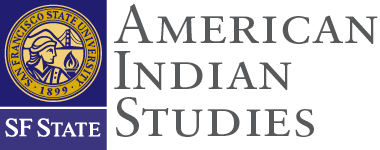
The Department of American Indian Studies (AIS) offers a major as of Fall 2007; it also offers a minor. The Department's mission and objectives have a special responsibility to Native peoples of California and the United States. California is the land on which the university and department rest; the CSU is a public institution in the U.S. education system. Therefore, significant aspects of the program are focused on Natives of California, US-Native politics and North American Indian Cultures. The program also includes a comparative and coalition-building perspective with Native peoples of US-occupied territories and, more broadly, the Americas and the Pacific. It balances classroom education with an active community participation component and prepares students for graduate work or a number of careers with Native peoples and urban communities in California, the U.S. and internationally.
Degree Options
The Bachelor of Arts in American Indian Studies (AIS) is designed to challenge students to think critically about the differences and similarities between American Indians' lives of the past and present and their own. The emphasis in the curriculum placed on duality links the concerns of tribal communities with academic rigor, enabling our faculty to harness their expertise and passion for teaching in ways that lead to greater student cultural competence and prepares them to meet high expectations.
The Minor in American Indian Studies (AIS) is designed to enable students to understand the differences and similarities between American Indians' lives of the past and present and their own. Like the AIS major, the duality emphasized within the curriculum, encourages students to explore linkages between the concerns of tribal communities and academic rigor, that lend to greater student cultural competence and understanding of the most ingrained myths about American Indians, the roles they have played in the United States and internationally, over time, and the goals of historical and contemporary cultural maintenance and revitalization movements. AIS Minors develop a basic understanding of the complex histories, politics, and social issues confronting Native peoples in the contexts of U.S. colonization, imperialism, and globalization and experience a balanced classroom education with an active community participatory learning component.